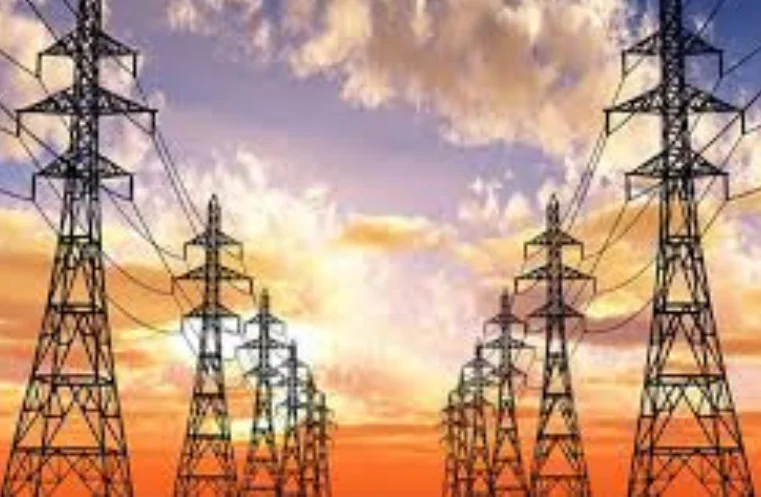ISLAMABAD, March 15: The government of Pakistan, along with commercial banks, is reportedly moving toward a potential agreement on a Rs 1.23 trillion loan aimed at resolving the power sector circular debt (CD).
This loan will consist of Rs 523 billion in fresh exposure, while the remaining Rs 700 billion will be restructured at a lower interest rate.
The deal is seen as a crucial step in addressing the current power sector debt, which stands at around Rs 2.3 trillion.
Key Details of the Deal:
Loan Structure:
- Fresh Exposure: Rs 5.23 billion.
- Restructuring of Existing Loan: Rs 700 billion to be restructured at a more favorable interest rate.
- The government and banks are negotiating terms for the Rs 1.23 trillion loan, with the repayment period expected to be 2-3 years.
Interest Rate Negotiations:
- The government is seeking a 6% fixed interest rate for the loan until maturity.
- However, banks are reportedly hesitant to agree to this rate, and there is a possibility that the final rate may be higher, around 7% or 7.5%. The term sheets from the banks have not yet been finalized.
Debt Servicing Surcharge (DSS):
- The government has proposed that the loan be repaid through a Debt Servicing Surcharge (DSS) of Rs 2.83 per unit of electricity.
- This surcharge is expected to be sufficient to retire the loan without imposing additional taxes or surcharges on consumers.
Circular Debt Reduction Efforts:
- As part of the power sector’s debt reduction plan, the government has already managed to save Rs 300 billion through the waiver of Late Payment Interest (LPI).
- Another Rs 300 billion is expected to be saved through ongoing negotiations with Government Power Producers (GPPs).
- The overall goal is to reduce or eliminate Rs 5 trillion in circular debt, with the petroleum sector contributing Rs 2.7 trillion of this total.
Stakeholder Involvement:
- A consortium of 15-20 commercial banks is involved in the negotiations, which are currently ongoing.
- The government has also shared the proposal with the International Monetary Fund (IMF) in preliminary discussions. However, the IMF’s approval is contingent on the banks finalizing their term sheets.
- The IMF is expected to have no major objections to the plan since the new loans will be comparatively cheaper than the existing, more expensive ones.
Prime Minister’s Directive:
- Prime Minister Shehbaz Sharif has directed the Power Sector Task Force to work with the Petroleum Division to prepare a detailed proposal for reducing petroleum sector circular debt, which also plays a significant role in the overall circular debt issue.
Read More:Pakistan Secures Rs. 1.25 Trillion Loan to Ease Circular Debt
Potential Impact of the Loan Deal:
- Banks: If the deal is finalized, it could help banks by restructuring existing debt at a lower rate, while also providing them with the opportunity to earn on the fresh exposure.
- Power Sector: The deal could help alleviate the crippling circular debt issue in Pakistan’s power sector, enabling companies to avoid interest payments and freeing up capital for investment.
- Consumers: The proposed Debt Servicing Surcharge (DSS) should prevent the government from imposing any additional taxes or surcharges on consumers, although they would still face slightly higher electricity rates to cover the loan repayment.
Challenges and Next Steps:
- Negotiations with Banks: The main hurdle currently is the negotiation of the interest rate. While the government is aiming for a 6% fixed rate, it may need to compromise with banks on a slightly higher rate.
- Finalization of Term Sheets: The deal is not yet finalized as banks have not yet shared their term sheets with the authorities.
- IMF Approval: The IMF’s approval of the deal is crucial, and while it is expected to be favorable due to the plan’s focus on replacing expensive loans with cheaper ones, concrete proposals can only be presented once the term sheets are shared.
Also Read:
Govt Seeks Massive Bank Loan to Tackle Circular Debt Crisis
The proposed loan deal is a crucial step towards resolving Pakistan’s power sector circular debt.
If successful, it could help stabilize the sector, reduce financial losses, and create a more sustainable energy environment.
However, the success of the deal depends on finalizing the terms with commercial banks, getting approval from the IMF, and ensuring that the debt can be serviced through manageable surcharges on electricity.









